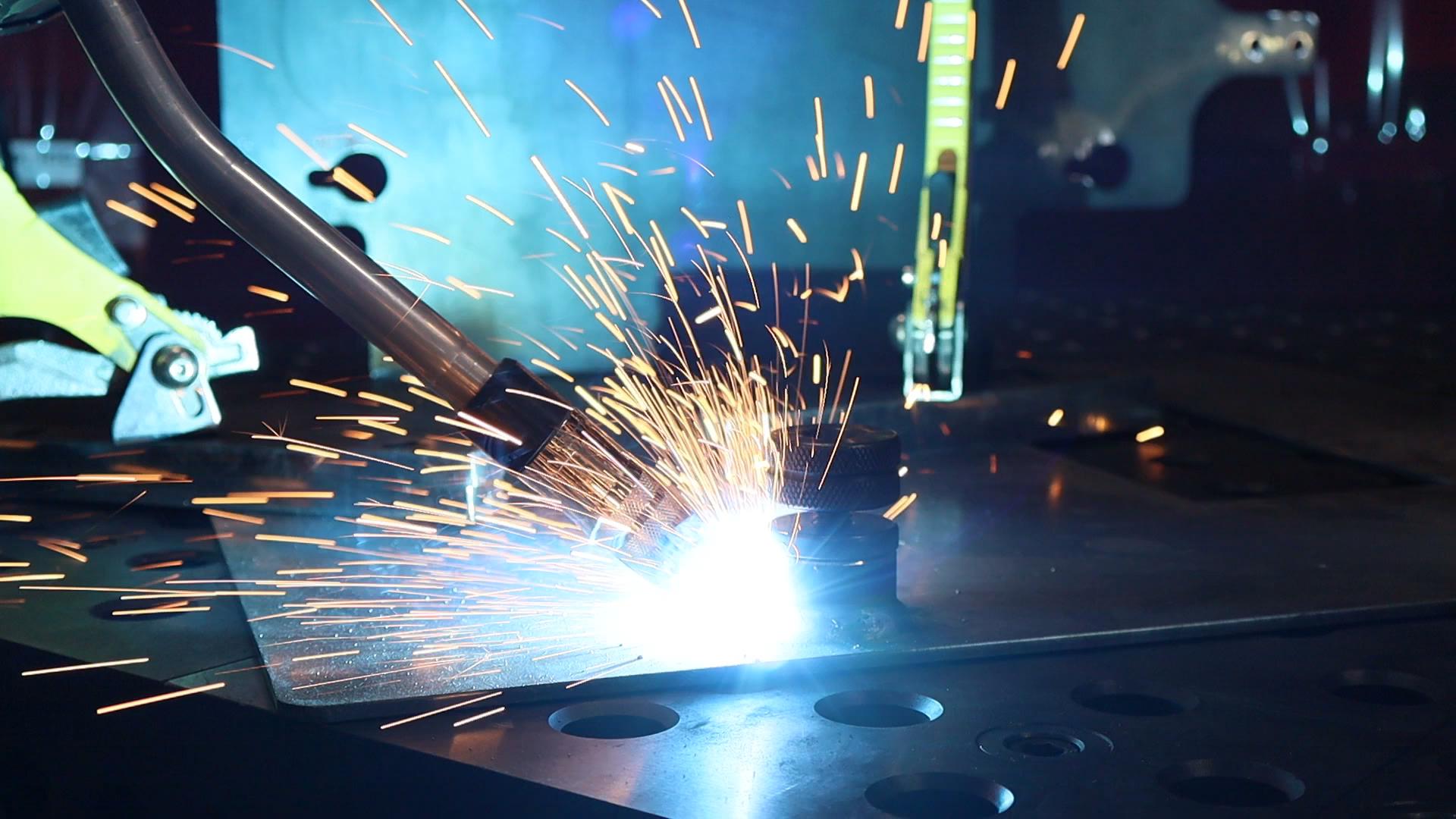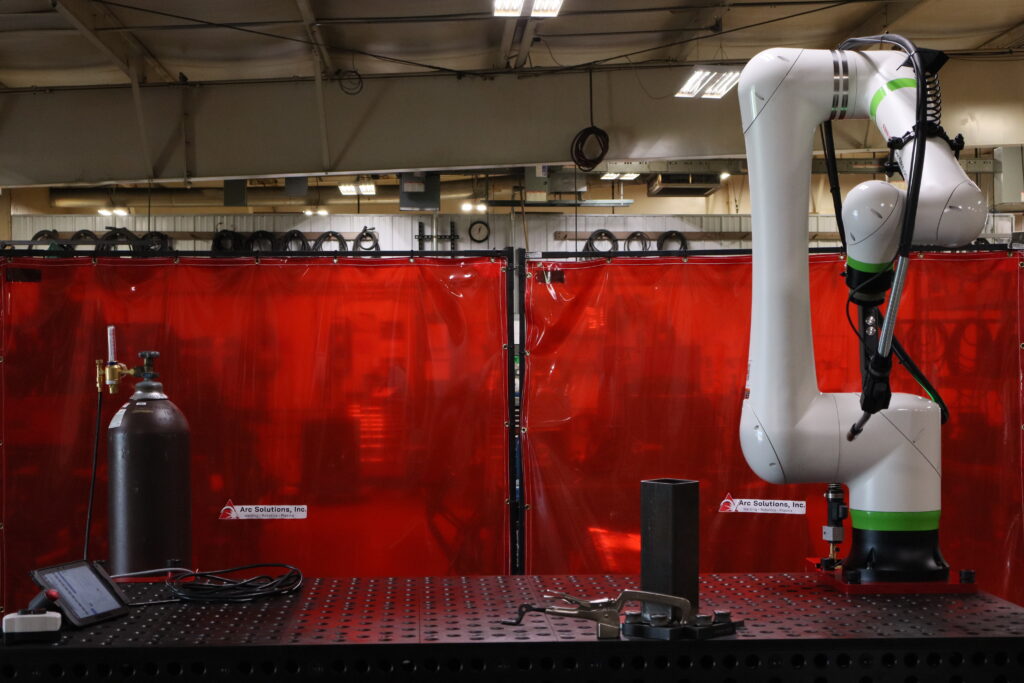
Supercharge Your Welding Efficiency with Robotic Welding
In today’s fast-paced metal fabrication industry, manufacturers face mounting challenges that demand innovative solutions. From labor shortages to inconsistent weld quality and increasing demands for faster production, staying competitive is no easy task. Fortunately, robotic welding cobots like Lincoln Electric’s Cooper™ Cobots, are transforming the way fabricators approach these issues.
Overcoming Common Challenges in Fabrication
Labor Shortages
The skilled labor gap in welding has left many businesses struggling to meet production demands. Cobots offer a reliable solution, automating repetitive welding tasks while allowing skilled workers to focus on more complex and value-added activities.
Inconsistent Weld Quality
Human error can lead to weld inconsistencies that impact product quality. Robotic welders deliver precise and repeatable welds every time, ensuring superior results and reducing waste.
Production Speed
Meeting tight deadlines can be challenging with traditional methods. Automated welding machines like the Cooper™ Cobots significantly increase productivity by working faster and with greater accuracy than manual processes.
Seamless Integration with Existing Workflows
One of the greatest advantages of cobots is their ability to integrate seamlessly into existing workflows. Lincoln Electric Cooper™ Cobots are designed for simplicity, requiring no advanced robotics expertise or extensive modifications to your production line. Equipped with a user-friendly teach pendant, this technology ensures a smooth transition so your team can start experiencing the benefits of robotic welding right away.
An essential concept to remember when exploring automation in a shop setting is that its purpose isn’t to replace workers, but to collaborate with them, streamlining repetitive tasks and boosting overall productivity. Whether you’re a small operation or a large-scale manufacturer, cobots provide a scalable solution to meet your needs. Plus, they enhance workplace safety by minimizing workers’ exposure to hazardous environments, heat, and fumes.
How Much Does a Robotic Welding Machine Cost?
The cost of a robotic welding machine can vary widely depending on the model and features. Entry-level systems with bare-bones features start at around 60,000 dollars. Depending on the cobot brand, welder, and accessories the price can climb to 100K and more for a single turnkey industrial cobot. Additional costs may include installation, software, training, and maintenance. Despite the upfront investment, these systems often pay for themselves quite quickly through increased efficiency, reduced waste, and improved product quality.
Are Robotic Welders Worth It?
Yes, robotic welders are worth the investment for many businesses. They enhance productivity, improve weld consistency, and reduce labor costs by automating repetitive tasks. Robotic systems can operate continuously, leading to faster turnaround times and increased output. They also help address challenges like labor shortages and ensure high-quality results, making them a valuable long-term asset in metal fabrication.
What Are The Robotic Welding Requirements?
To implement robotic welding, you’ll need:
- A suitable workspace: Enough room for the robot to operate safely and efficiently.
- Power and utilities: Ensure your facility can handle the electrical needs of the system.
- Training: Operators will need basic knowledge of the system’s software and controls, though many cobots are user-friendly and require minimal training.
- Weldments and part flow: The robotic system requires multiple parts of the same design. Automation is not good at doing one-off parts.
- Maintenance plan: Regular maintenance is essential to keep the system running smoothly and efficiently.
Are There Different Types of Robotic Welders?
There are two different types of robotic welders:
- Robots: Traditional robotic cells with very fast robots enclosed by a safety barrier
- Cobots: Collaborative robots that work side by side with people and have safeties built into the arm and cobot controller
Here are some of the most common industrial cobot brands:
- Fanuc CRX line-8 year maintenance free guarantee, cast aluminum housings
- Yaskawa Motoman HC line- Industrial and Clean space design, IP67 rated
- Abicor Binzel IBot- German engineered and built, very smooth motion, lower cost
- Kawasaki CL line- Industrial robot background
- Universal Robotics line-open platform for program development

Why Choose Cooper™ Cobots?
Lincoln Electric Cooper™ Cobots are built with advanced features tailored to meet the demands of modern fabrication environments. Offering unmatched precision, reliability, and flexibility, these cobots are the perfect investment for businesses looking to boost efficiency and stay ahead of the competition.
Ready to Take the Next Step?
Are you ready to take your welding efficiency to the next level? Book a demo with one of our technical sales representatives to see how this cutting-edge technology can seamlessly integrate into your production line. Our experts will walk you through the system and show you how it can help increase output with ease while maintaining weld quality.
Back to blog
